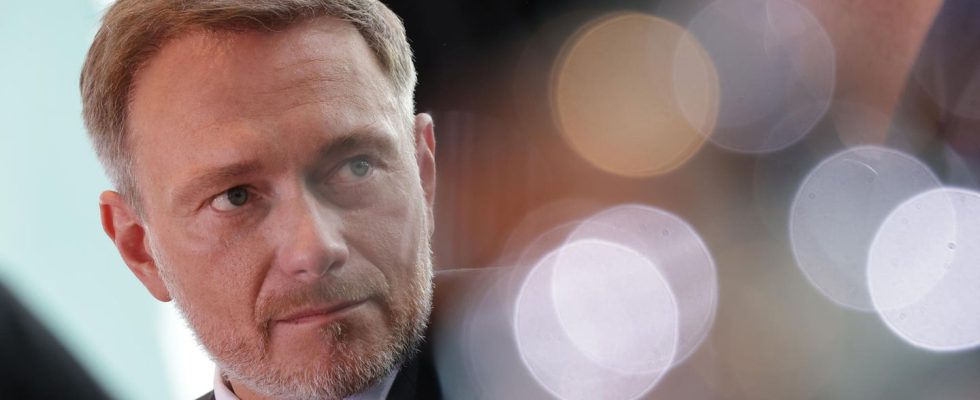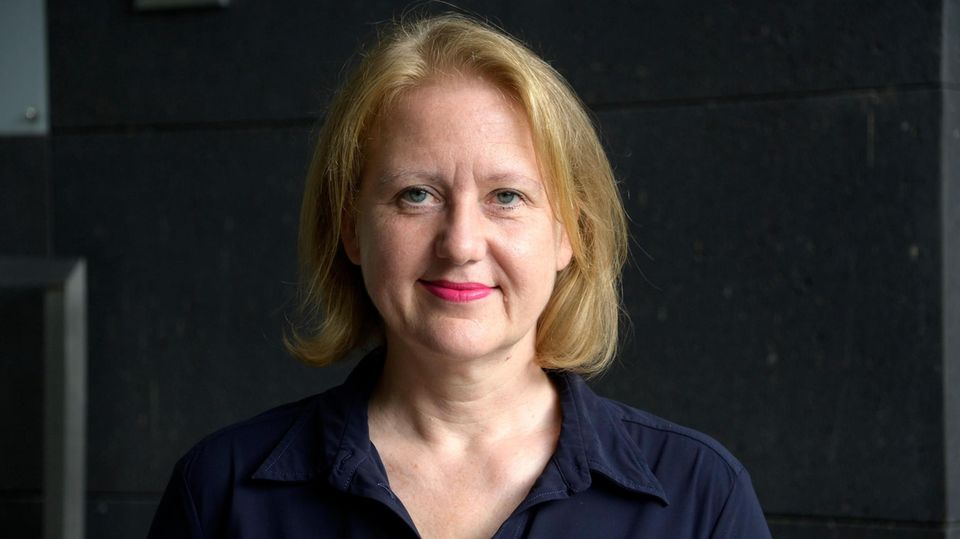Agreed in the coalition agreement
Next traffic light dispute arises: Minister of Finance Lindner wants to save basic child security
Federal Finance Minister Christian Linder (FDP) does not want to make any money available for the traffic light project for basic child security (archive image)
© Sean Gallup / Getty Images
The basic child security agreed by the traffic light is to cost twelve billion euros. Money that does not exist, says Federal Finance Minister Christian Lindner (FDP). From the coalition partners, he reaps objection – it smells once again of traffic light Zoff in Berlin.
As soon as the SPD, Greens and FDP have their coalition committee behind them, the next traffic light Zoff is in sight. Apple of discord this time: the basic child security. In an interview with “Bild am Sonntag”, Federal Finance Minister Christian Lindner puts the ax to the project agreed in the coalition agreement.
In the conversation, the FDP politician made it clear that he sees no financial leeway for the social benefit. “This government must find the strength to save. We must set clear priorities,” said Lindner.
Basic child security costs twelve billion euros a year
The planned basic child security is intended to bundle several state benefits and make it easier for families to obtain support. “We want to create better opportunities for children and young people with basic child security and focus on those who need the most support,” says the traffic light coalition agreement, which Christian Lindner also signed. Federal Minister for Family Affairs Lisa Paus (Greens) estimates the costs of basic child security at twelve billion euros per year. Money that, according to Lindner, is not there. “There is currently no question of additional expenditure,” says Lindner. The government must set priorities.
“Arche” spokesman on child poverty
“At the moment, money is tighter than I’ve ever experienced. Inflation is eating up the children.”
Linder counted among these “the renewal of the infrastructure of all modes of transport, digitization of the state, upgrading of the Bundeswehr, strengthening of education and research, modernization of trade, medium-sized companies and industry”. Other projects such as basic child security are “desirable, but currently not feasible”.
According to a study by the Bertelsmann Foundation, around 2.8 million boys and girls in Germany are at risk of poverty – every fifth child. “Young people who grow up in poverty suffer from lack, sacrifice and shame on a daily basis and at the same time have significantly worse future prospects,” said Bertelsmann expert Anette Stein recently when the study was presented. In view of the inflation, it is to be expected that the crisis will worsen for many families.
Lindner believes that more money alone will not help poor children. “Child poverty is also often due to the parents’ unemployment. That is why language training and the integration of parents into the labor market are crucial in order to improve the children’s chances. At some point, the redistribution of money will reach its limits when it comes to fighting poverty,” said the finance minister and referred at the same time the increase in child benefit to 250 euros. “The essentials for the basic child security is done financially.”
Traffic light headwind for Christian Lindner
The answer to Lindner’s negative attitude to basic child security came immediately. Green parliamentary group leader Maria Klein-Schmeink told the DPA news agency that the fight against child poverty was a “task for society as a whole, to which Mr. Lindner should also feel obliged”. She calls on the finance minister to clarify “all key points and the financial resources” this year so that the payment can begin on January 1, 2025. “Basic child security is the central family and social policy project of the traffic light coalition, to which all partners have committed themselves.” Klein-Schmeink continues: “The aim is to get children out of poverty and to support all families equally.” Green parliamentary group leader Britta Haßelmann told the editorial network Germany that child poverty threatens the future of children and is “scandalous in such a rich country. Changing that, that’s what it’s all about now.”
Most recently, several federal states had pushed to clear the way for basic child security. However, an initiative by the Saarland to speed up the issue did not find a majority in the Bundesrat.
In addition to the Greens, the Social Democrats are also insisting on the rapid introduction of basic child security. The parliamentary director of the SPD parliamentary group, Katja Mast, said her party was “the guarantor” that the performance would come. “Basic child security will be implemented from 2025.” Secretary General Kevin Kühnert was also convinced that she would “definitely” come.
Despite the harmony of the three government partners demonstrated after the coalition committee, there is a renewed smell of gossip at the traffic lights. The joint paper after the meetings at the beginning of the week contains nothing on the subject of basic child security. Plenty of space for new discussions.
Sources: “Picture on Sunday”, coalition agreement, Bertelsmann Foundation, Editorial network Germany, Closing paper of the coalition committeeAFP news agency



